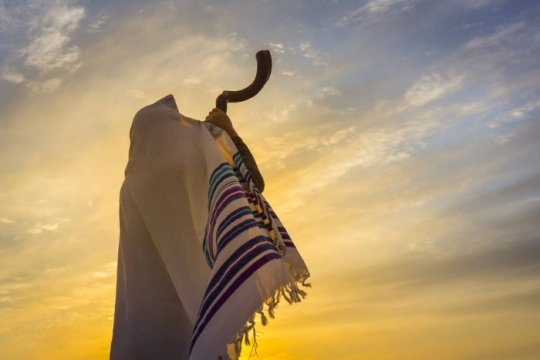
I’m not sure I made a conscious choice to try daf yomi, the practice of reading a page of Talmud each day – and had I really thought about it, I might not have decided to try it at all. The idea of doing anything for at least an hour a day for seven and a half years (which is how long it takes to study the entire Talmud) is a bit overwhelming.
I didn’t think seriously about participating in the daily ritual until I read this essay by Rabbi Ben David, a colleague whom I like and respect. Realizing that studying Talmud isn’t only for yeshiva bochers (young boys who study in yeshivas), I started thinking seriously about the possibility. Around the same time, another colleague started a group for other progressive rabbis who were planning to participate in daf yomi.
I joined immediately.
I have been, for a while, seeking a daily spiritual practice, but finding one hasn’t been easy. Meditation isn’t an accessible practice for me, yoga makes me feel irrationally angry, and I loathe the gym. But I’ve long known that having something would be beneficial, and I’ve been envious of my friends who have such a daily practice. I know, too, that it is through intellect that I often have had my most meaningful spiritual connections. And I’ve always wanted to know more Talmud.
That said, seven and a half years is a long time. It’s a little scary to make a commitment of that length, especially when I consider how many other things I’ve said I’d do over the years that, well, fell by the wayside.
In other words, I knew I could try daf yomi, but I was not confident I would succeed.
Before the cycle started, curious who else was out there, I asked in a Jewish women’s group on Facebook who else would be starting daf yomi. Several women answered, and someone suggested starting a women’s daf yomi group.
I realized that if I started such a group, I could ensure that diverse Jewish voices truly would be heard and valued. What’s more, such a group would provide accountability, which would help me stick to my commitment. And so I started "Jewish Women Daf Yomi About Anything."
Just like that, I’d committed to reading a page of Talmud every day and formed a group of more than 1,000 women, which has become one of the kindest, most welcoming and respectful places I’ve experienced on the internet.
It’s been amazing to connect with a diversity of members of the Jewish community through daf yomi, and it feels as though we are creating a modern Talmud – adding our own commentaries to those of our ancestors.
A few weeks in, this adventure has been so much better than I imagined. I love the experience of daily study, and I value both the Facebook group I started and the others in which I’m involved. When friends reach out to tell me they are studying, too, we often make plans to learn together, both online and in-person. I cherish this opportunity to ground myself through learning.
What I didn’t anticipate is thinking about Talmud throughout the day – but in moments between things to do and places to be, I often find myself thinking about Talmud instead of so many other things, and I frequently see in the daily page many lessons relevant to me and my life.
Thinking about the values I want to live by and the nuances of those values makes me feel better, in general, and thinking more about the texts of our ancestors than the gossip of my peers gives me a boost each day. Overall, this practice offers me powerful reminders of how to respond to the challenges of our world, reinforcing the idea that it is my responsibility to do so – that I can and must respond.
I am blessed to live in a time in which I have the right to learn and study Jewish texts, especially as a woman; to use technology (in all its meanings), which has truly opened up this process; to have started and to lead a group that has thrived beyond my expectations; and to possess the imagination and creativity that allows me to find, in the Talmud, my own voice.
I can’t wait to see where this adventure takes me and what I will continue to learn, think about, and teach. I embrace the challenge – both of the text itself and of the daily commitment – and I can’t wait to continue, day by day and page by page.
Related Posts

Unetaneh Tokef in the Time of a Pandemic

What the Bible Really Says: A Prayer for Those Who Love Humanity and Our Texts


